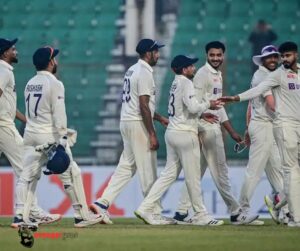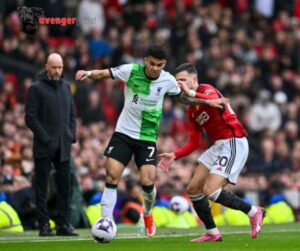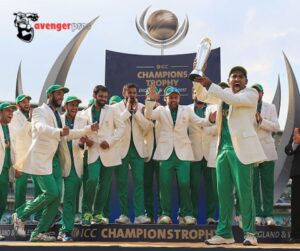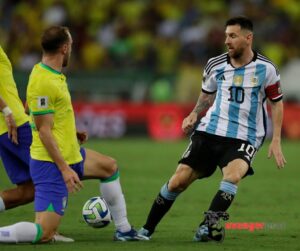
Brazil and Argentina Stunned: Both Lose in World Cup Qualifying Matches
These losses sent shockwaves through South America and the global football community, raising questions about the future trajectory of both squads as they aim to secure spots in the next World Cup.
Brazil, the record five-time World Cup champions, and Argentina, the current holders of the FIFA World Cup after their triumphant 2022 victory in Qatar, have long dominated the South American football scene. However, on this occasion, both nations found themselves on the receiving end of shocking defeats that highlighted vulnerabilities that have rarely been exposed in such fashion in Brazil and Argentina.
Brazil’s Uncharacteristic Collapse
Brazil’s defeat was particularly surprising given their rich history in the tournament and the high expectations surrounding their squad. Playing away from home against an up-and-coming Uruguay side, Brazil struggled to find rhythm throughout the match. Uruguay capitalized on defensive errors and outplayed Brazil, securing a 2-1 victory in front of an electrified home crowd in Montevideo.
Brazil’s coach, Fernando Diniz, has been under scrutiny since taking over as the interim coach after Tite’s resignation following the 2022 World Cup. Diniz, known for his attacking philosophy, has had difficulty adapting his strategies to the unique demands of international football. His team looked disjointed and unable to cope with Uruguay’s high press, especially in midfield where key players like Casemiro and Bruno Guimarães were outmuscled in Brazil and Argentina.
Uruguay’s game plan was simple but effective. They pressed Brazil high up the pitch, forcing errors in the build-up play. This strategy paid off in the 35th minute when Giorgian De Arrascaeta capitalized on a defensive lapse, giving Uruguay a deserved lead. Brazil attempted to rally in the second half, with Neymar providing a spark of creativity, but Uruguay’s well-organized defense frustrated their efforts. A late goal from Darwin Núñez sealed the win for Uruguay, leaving Brazil shell-shocked.
Post-match, Diniz admitted that the defeat was a wake-up call: “We were not at our best today, and Uruguay took advantage of our mistakes. We need to reassess our approach and make sure we improve in the upcoming games in Brazil and Argentina.
Argentina’s Surprising Slip Against Ecuador
Meanwhile, Argentina’s unexpected defeat came at the hands of Ecuador, who pulled off a stunning 1-0 win in Buenos Aires. Argentina, fresh from their World Cup victory and having started the qualifiers with a string of strong performances, looked complacent and lacked the sharpness that had defined their play in recent months. The loss was Argentina’s first at home in over five years, making it a significant moment in their campaign in Brazil and Argentina.
Despite the presence of Lionel Messi, the talismanic captain and reigning Ballon d’Or winner, Argentina struggled to break down Ecuador’s disciplined defensive setup. Messi, who had been nursing a minor injury before the match, looked fatigued and was unable to produce the moments of magic that fans have come to expect from him. Coach Lionel Scaloni opted to keep Messi on the pitch for the full 90 minutes, but it became evident that even Messi couldn’t carry the team alone this time in Brazil and Argentina.
Ecuador’s winner came in the 70th minute, courtesy of Moisés Caicedo, who struck from long range after Argentina failed to clear a corner kick. Caicedo’s goal stunned the Estadio Monumental, and despite a late flurry of attacks from Argentina, Ecuador held firm to secure the famous win in Brazil and Argentina.
Argentina’s coach, Scaloni, remained calm in his post-match comments: “These games are always difficult. Ecuador defended well, and we lacked the final touch. We will analyze the match and work on the areas that need improvement. This is not the end of the road; it’s just a bump along the way in Brazil and Argentina.
The Tactical Shortcomings
For Brazil, the match exposed weaknesses in their defensive organization and lack of cohesion in midfield. Traditionally, Brazil’s footballing identity has revolved around free-flowing attacking play combined with a solid defense. However, in recent matches, they have struggled to balance these two elements. The absence of a clear defensive leader in the backline has been a recurring problem for Diniz, with veteran players like Thiago Silva nearing the twilight of their careers and newer faces like Éder Militão yet to fully assert themselves in Brazil and Argentina.
Neymar, Raphinha, and Richarlison have shown flashes of brilliance, but their inability to break down Uruguay’s defense highlighted the lack of a reliable number nine to finish off chances. With Brazil’s traditional reliance on a clinical striker like Ronaldo or Romário in the past, the current squad seems to be missing that lethal edge in front of goal in Brazil and Argentina.
On the other hand, Argentina’s loss revealed a growing dependency on Messi, even at this late stage of his career. While Messi continues to be one of the best players in the world, Argentina must prepare for a future without him. The team’s reliance on Messi to create and score goals was evident as their attack lacked creativity and urgency when he was marked out of the game. Lautaro Martínez and Julián Álvarez, while talented, struggled to link up effectively with the midfield and failed to penetrate Ecuador’s defense in Brazil and Argentina.
A Glimmer of Hope for the Underdogs
Uruguay and Ecuador, long considered second-tier footballing nations in South America, have shown tremendous growth and resilience. Uruguay, under the guidance of coach Marcelo Bielsa, looks revitalized with a blend of experienced veterans like Luis Suárez and Edinson Cavani, along with exciting younger players like Núñez and Federico Valverde. Their victory over Brazil signals a new era for the team as they aim to compete not just for qualification but to make an impact at the 2026 World Cup.
Also read this;>Backyard Olympics: The Ultimate Outdoor Challenge





